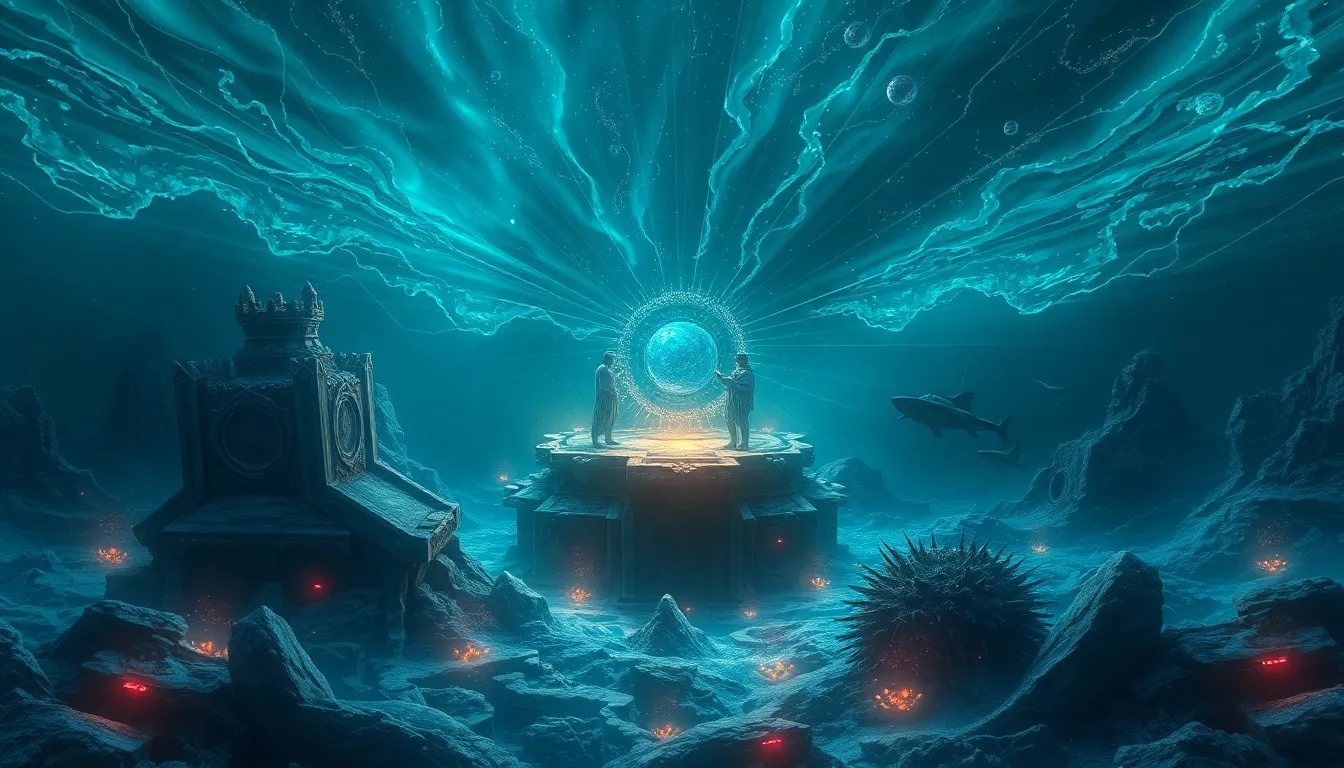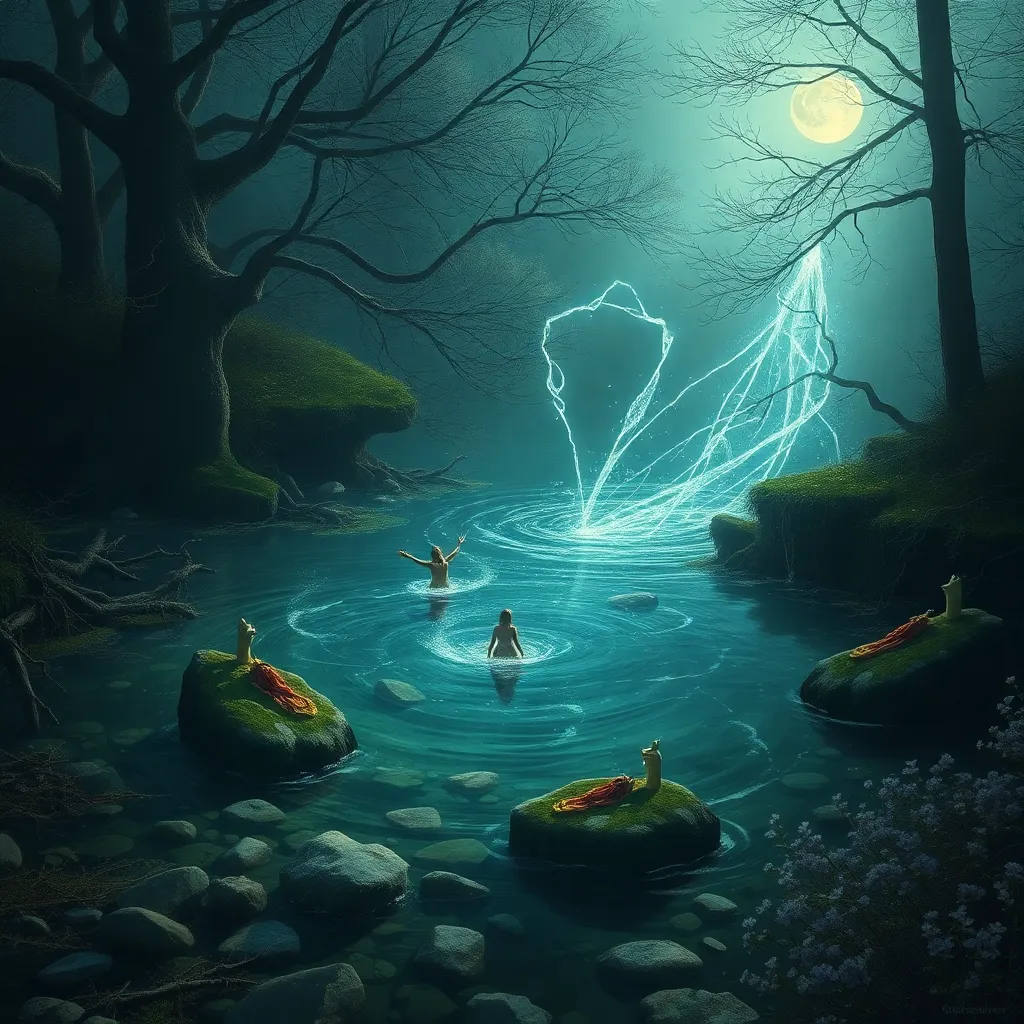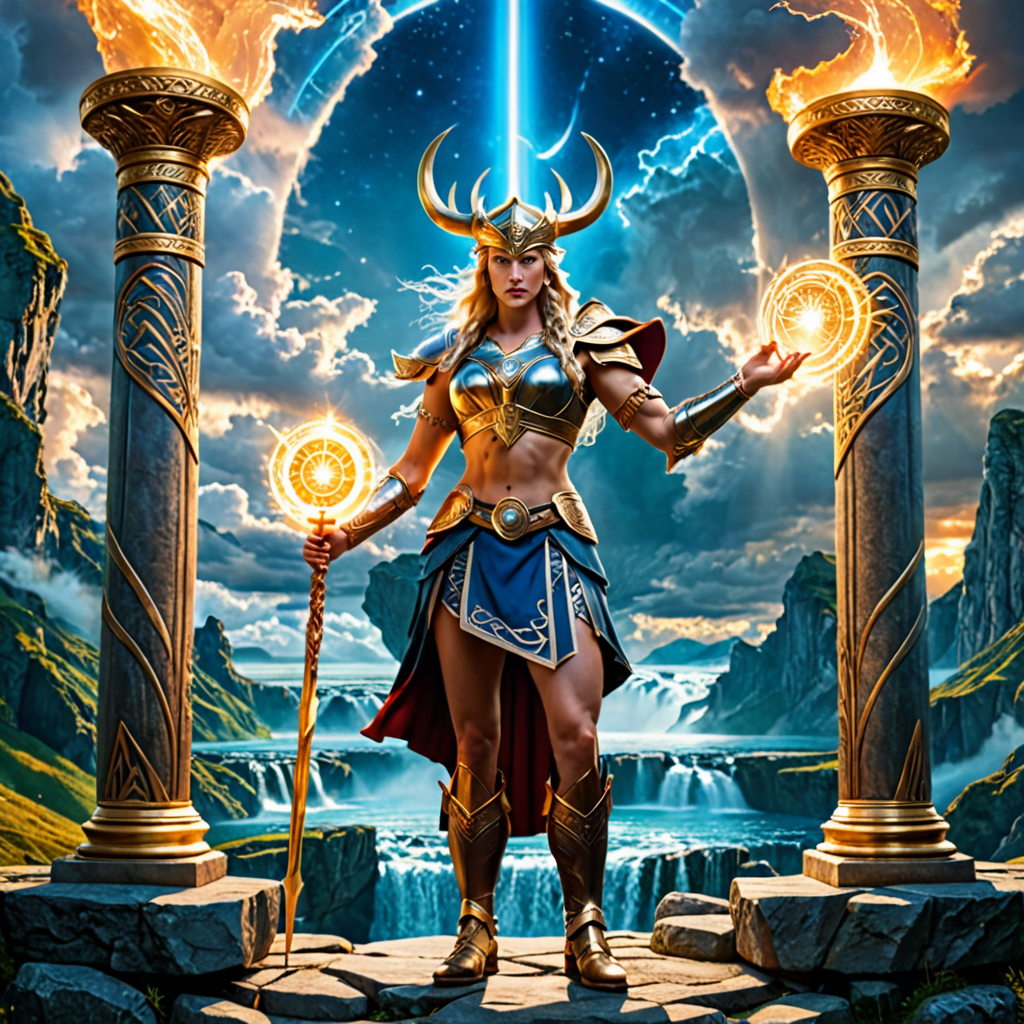The Gem of the Sea: Myths of Ocean Mysteries
I. Introduction
The ocean has captivated humanity for centuries, serving as both a source of sustenance and a realm of enigma. Its vastness, depth, and the mysteries it holds have inspired countless myths and legends. From ancient sailors navigating treacherous waters to modern explorers seeking the truth behind age-old tales, the ocean’s allure remains undiminished.
Myths play a crucial role in our understanding of oceanic mysteries. They provide insights into the fears, hopes, and beliefs of the cultures that created them. By examining these stories, we can gain a deeper appreciation for the relationship between humanity and the sea. This article aims to delve into the rich tapestry of ocean myths, exploring their origins, meanings, and contemporary relevance.
II. Historical Context of Ocean Myths
Throughout history, various civilizations have developed profound relationships with the sea, often weaving its mysteries into their mythologies.
A. Ancient civilizations and their relationship with the sea
From the Phoenicians who were master navigators to the Polynesians who explored the vast Pacific using the stars, ancient cultures relied heavily on the ocean for trade, food, and exploration. The sea was not just a resource; it was a powerful force that inspired awe and reverence.
B. The role of mythology in navigation and exploration
Mythology often served as a guide for sailors. Stories of gods and monsters warned of dangers while also providing a sense of comfort and purpose. Navigators would recount tales of legendary creatures to bolster morale during long voyages.
C. Notable maritime cultures and their legends
- The Greeks with their tales of Poseidon and the Sirens.
- The Norse sailors who spoke of the Kraken and other sea beasts.
- The Polynesians and their ancestral navigation myths.
III. The Sirens: Enchantresses of the Deep
One of the most enduring myths from the ocean is that of the Sirens, beings who lured sailors to their doom with enchanting songs.
A. Origins of the Siren myth in Greek mythology
Originating from Greek mythology, Sirens were depicted as beautiful maidens who sang irresistible melodies. Their songs were said to be so captivating that sailors would steer their ships toward the sound, often leading to shipwrecks on rocky shores.
B. Symbolism of temptation and danger
The Sirens symbolize the duality of beauty and danger. They represent the allure of the unknown, enticing individuals to venture into perilous situations. This theme resonates throughout many cultures, highlighting the importance of caution in the face of temptation.
C. Cultural adaptations and modern interpretations
In modern times, the Siren myth has been adapted into various forms of media, including literature, film, and music. These adaptations often explore the complexity of the Siren’s character, sometimes portraying them as victims of circumstance rather than mere temptresses.
IV. The Kraken: Beast of the Abyss
No ocean myth is as formidable as that of the Kraken, a legendary sea monster said to dwell off the coasts of Norway and Greenland.
A. Historical accounts of sea monsters and giant squids
The Kraken’s legend likely stems from sightings of giant squids, which can grow to impressive lengths. Historical accounts from sailors often describe monstrous tentacles rising from the depths, dragging ships and crews into the abyss.
B. The Kraken in Scandinavian folklore
In Scandinavian folklore, the Kraken is depicted as a massive creature capable of sinking entire fleets. Tales of the Kraken served both as cautionary tales and as explanations for the unexplained disappearances of ships.
C. Scientific explanations behind sightings of sea monsters
Modern science offers explanations for many sea monster sightings, attributing them to misidentified marine life or natural phenomena. Nevertheless, the allure of the Kraken persists, highlighting the human tendency to fill the unknown with fantastical narratives.
V. Atlantis: The Lost City Beneath the Waves
Perhaps the most famous of all ocean myths is that of Atlantis, a lost civilization described by the philosopher Plato.
A. Plato’s account of Atlantis and its influence on myths
According to Plato, Atlantis was a powerful island nation that sank into the ocean in a single day and night of misfortune. His account has inspired countless theories and explorations, fueling the imagination of adventurers and scholars alike.
B. Theories about the location and existence of Atlantis
Theories regarding Atlantis’ location have varied widely, with suggestions ranging from the Mediterranean to the Caribbean. Despite extensive searches, no conclusive evidence of Atlantis has been found, adding to its mystique.
C. Atlantis in popular culture and modern explorations
The legend of Atlantis has permeated popular culture, appearing in books, films, and television shows. Its themes of lost knowledge and advanced civilizations continue to resonate, inspiring explorations both literal and metaphorical.
VI. Mermaids: The Duality of Beauty and Danger
Mermaids are another emblematic figure of ocean mythology, representing a blend of beauty and peril.
A. Origins of mermaid legends across different cultures
Mermaid legends exist in various cultures worldwide, from the Sirens of Greece to the Mami Wata of African folklore. Each culture imbues the mermaid with unique characteristics and stories.
B. Mermaids as symbols of both allure and peril
Mermaids often embody the duality of attraction and danger. Their enchanting appearances draw sailors in, but they can also be vengeful or malevolent, leading to shipwrecks and loss.
C. Contemporary portrayals and their impact on cultural perceptions
In contemporary media, mermaids are frequently depicted as romantic figures, softening their traditionally dangerous connotation. This shift reflects changing societal views on femininity and power.
VII. The Bermuda Triangle: A Mysterious Vortex
The Bermuda Triangle, a region in the western part of the North Atlantic Ocean, has garnered a reputation for mysterious disappearances of ships and aircraft.
A. Overview of the Bermuda Triangle phenomenon
Many vessels and planes have reportedly vanished in this area under unexplained circumstances, leading to theories ranging from supernatural phenomena to extraterrestrial involvement.
B. Myths and theories surrounding unexplained disappearances
- Some believe the area is cursed or haunted.
- Others propose that underwater topography creates unique hazards.
- Some theories suggest human error as the primary cause.
C. Rational explanations vs. supernatural beliefs
While many of the myths surrounding the Bermuda Triangle have been debunked through research, the fascination with its mysteries continues, reflecting humanity’s desire to understand the inexplicable.
VIII. Legends of Sea Gods and Deities
Across cultures, sea gods and deities have played significant roles in mythology, guiding sailors and influencing maritime traditions.
A. Overview of prominent sea gods across cultures (e.g., Poseidon, Neptune)
In Greek mythology, Poseidon ruled the seas, while Neptune held a similar position in Roman lore. These deities were often invoked for safe passage and protection from storms.
B. The influence of these deities on maritime traditions
Many cultures have rituals and offerings aimed at appeasing sea gods, ensuring safe voyages and bountiful catches. These practices reflect the deep respect and fear that the ocean inspires.
C. Modern reverence and cultural celebrations
Today, festivals and celebrations honoring sea deities still occur, showcasing the enduring connection between humanity and the ocean.
IX. The Role of Folklore in Marine Conservation
Folklore doesn’t just preserve history; it can also inspire modern conservation efforts.
A. Myths and their impact on environmental stewardship
Many myths emphasize the importance of the ocean and its creatures, fostering a sense of stewardship and respect for marine environments.
B. Case studies of folklore inspiring conservation efforts
- The story of the Maori guardianship of the sea.
- Legends that emphasize the sacredness of particular species or ecosystems.
C. Bridging traditional beliefs with modern science
By integrating traditional beliefs with contemporary scientific understanding, communities can develop effective conservation strategies that honor both culture and nature.
X. Conclusion
The ocean is a vast and mysterious realm, rich with myths that reflect human imagination and the quest for understanding. From the Sirens to the Bermuda Triangle, these stories not




